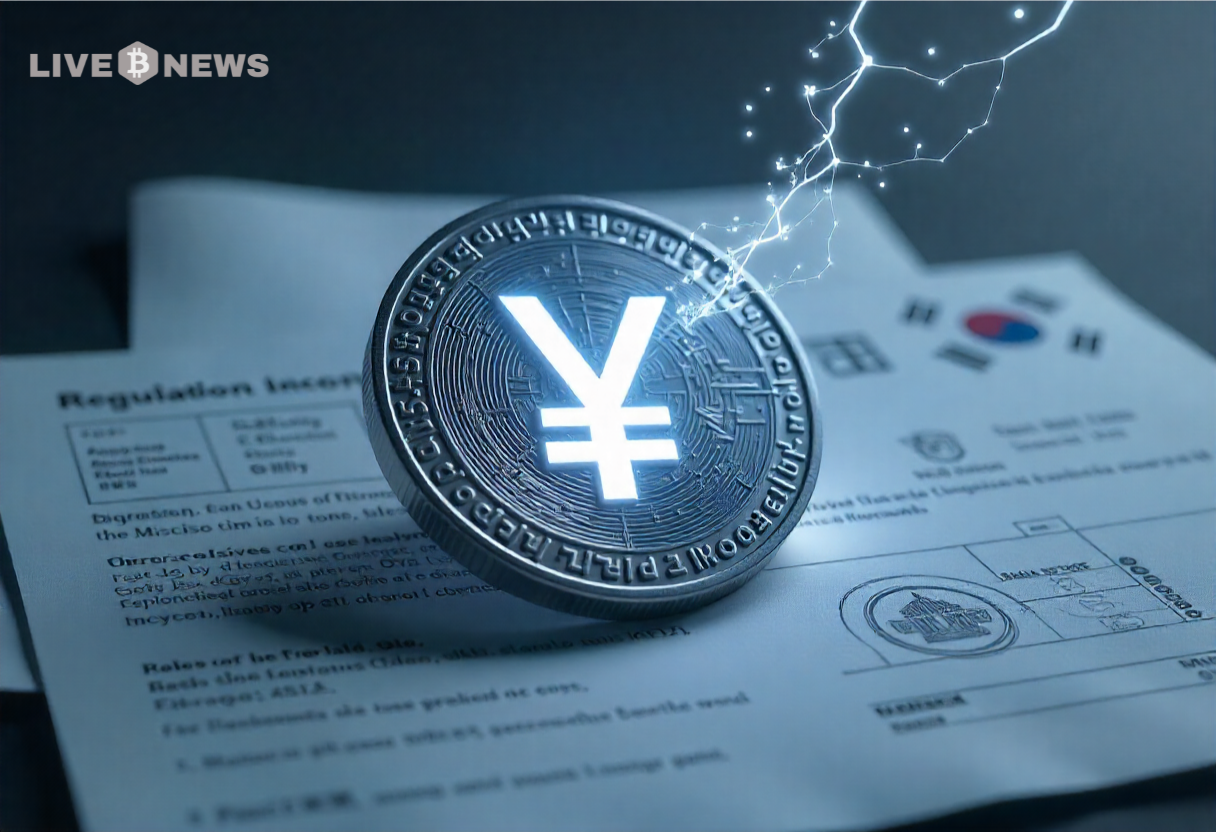South Korea halts crypto lending as FSC addresses legal risks, investor protection, and plans clear regulations by early 2026.
South Korea’s Financial Services Commission (FSC) has ordered all cryptocurrency exchanges to suspend lending services immediately, citing significant legal and financial risks. This ruling follows the FSC’s efforts in coming up with proper regulations for crypto lending. Exchanges cannot issue new lending contracts until the new rules are in place. However, they can renew or extend existing contracts. If they fail to comply, the FSC will inspect them on-site and may impose penalties.
Crypto Lending Under Fire in South Korea After 13% Liquidation Rate
The move by the FSC comes after crypto lending has been on the rise, especially on the largest exchange in South Korea, Upbit. At the beginning of July 2025, Upbit introduced a lending product, which enabled customers to lend up to 80% of their crypto assets, including popular coins such as Bitcoin and Tether. The service soon became popular, particularly among small-time investors in need of some fast returns to a volatile market. The FSC, however, made the product under a flag of operating in a gray area of the law, where there is no specific regulation of the product under the current financial laws in South Korea.
Related Reading: South Korea Moves to Regulate High-Risk Crypto Lending Services | Live Bitcoin News
The FSC reported that sharp drops in crypto prices forced about 13% of borrowers into liquidation. As a result, the regulator raised concerns about investor protection and market stability. This high liquidation level has created concerns about the protection of investors and the stability of the market. The FSC noted that high-risk loans and volatile markets were putting many borrowers, especially retail users, in danger. As prices of crypto assets fell, some borrowers were forced to sell their assets. This added more pressure to the market.
The FSC pointed out that the unchecked lending services pose a danger to the financial markets of South Korea. The regulator said in its official statement that exchanges must not offer lending products without a clear legal basis. Weak regulations have put investors at risk, especially during market turmoil. For example, Bitcoin’s price dropped by 15% last month, making leveraged loans even riskier for borrowers.
Korea’s Top Exchanges Stop Crypto Lending, Await 2026 Guidelines
Upbit, which dominates more than 70% of the crypto trading volume in South Korea, has followed the directive of the FSC and halted its lending services. Other exchanges like Bithumb and Coinone have similarly done the same in order to stay out of regulatory reach. Failure to comply has been warned by the FSC that it may lead into fines or limited operations. The regulator is now expediting the drafting of full crypto lending standards, which should be published early in 2026.
The crypto industry in South Korea is among the busiest in the world with millions of retail investors engaging on an everyday basis. The nation has been clamping down on crypto assets to crack down on speculative trading and consumer protection. In 2024, South Korea implemented tighter regulations against money laundering on crypto exchanges and required all users to go through real-name verification. The recent action of the FSC fits into this endeavour to introduce more transparency and stability into the market.
Industry insiders reckon that the crypto lending freeze might temporarily curb trading activity, but also open up to a safer market. Kim Soo-hyun, a blockchain analyst in Seoul, said: Clear rules will facilitate legitimization of crypto lending. In addition, these rules will boost the interest of institutional investors. In the interim, investors are encouraged to pay back loans or wait for assets until the new regulations are made clear. The activities of the FSC are indicative of South Korea attempting to strike the right balance between innovation and financial stability in crypto industry.
